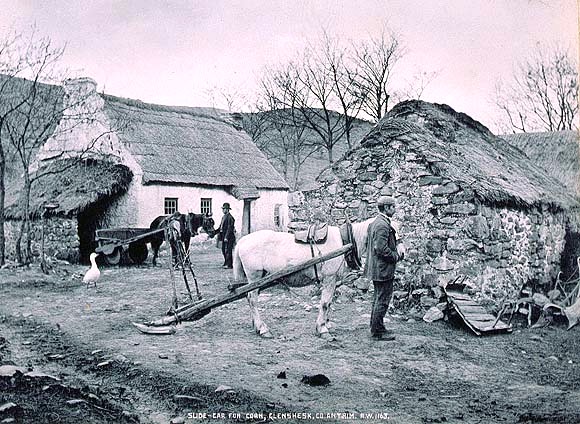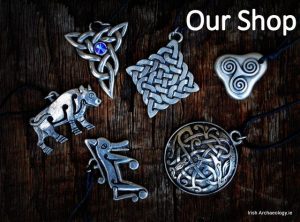
Whit Sunday (or Whitsun) is an important Christian festival that celebrates the Pentecost. It normally falls on the seventh Sunday after Easter and in Ireland it was sometimes considered a ‘contrary day‘. As a result it was surrounded by a rich folklore tradition, much of it concerning ‘bad luck’.
For example, people or animals born on Whit Sunday were deemed to be particularly dangerous and a blow inflicted by either might never heal. Children born on this day were variously referred to as Kinkishas, Cingiseach or Cincíse and in some localities it was believed that these individuals would end up killing somebody over the course of their life.
A folk tradition to prevent such misfortune was to a place a worm in the hand of a Kinkishas baby and let it die there. This initial ‘murder’ would remove the child’s ‘bad luck’ and prevent them from harming somebody in later life. Similarly, an animal born on Whit Sunday was sometimes placed on the ground and then covered with a sod of earth. It was believed that this symbolic act of burial would stop the animal from becoming ‘wicked’. In a similar vein, Whit Sunday babies were sometimes ‘buried’ by passing them ‘through a hole’ in an earthen bank or through a ‘temporary porch erected with sticks and covered overhead with sods‘. Again it was thought that this would break the ‘bad luck’ and prevent any future violence.
It was also believed that cuts or wounds inflicted on Whit Sunday would not heal until the following year. This may have been one of the reasons why farmers were discouraged from shearing their sheep on this day. Similarly, bad luck was thought to follow anyone who gave away salt, whitewashed their home or fell asleep during daylight hours on Whit Sunday.
Water was deemed especially dangerous during this period and children were warned not to approach rivers, lakes or the sea. Fishing and bathing were forbidden for similar reasons. In contrast, holy-water blessed on Whit Sunday was thought to be particularly powerful and could ‘cure’ many illnesses.
The folklore traditions in this blog post are derived from the School Folklore Collections which can accessed on-line here (search for the terms: Whit Sunday, Whitsun or WhitSunday).


